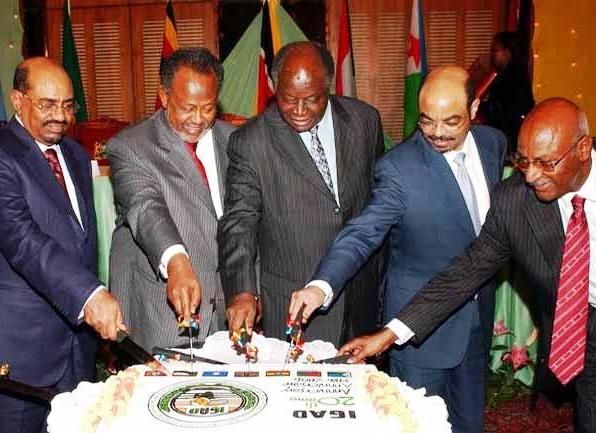Below the radar: How human rights abuses are being ignored in Tanzania – By Sarah Hermitage

Tanzanian police beating journalist Daudi Mwangosi, his torso eviscerated after police had fired a tear gas canister at him at close range.
In 2005 Jakaya Kikwete came to power as President of Tanzania on the back of anti-corruption rhetoric and assurances of good governance. Under his on-going presidency, economic growth has risen significantly but has not translated into a significant reduction in poverty. Allegations of grand corruption remain rampant with Kikwete providing little more than rhetorical evidence of his anti-corruption stand. Huge finds of oil and gas have also made Tanzania increasingly of interest to international business.
But a closer examination of Kikwete’s portrayal of Tanzania as an emblem of good governance and a haven for foreign investment reveals a disturbing picture that Western donors are refusing to acknowledge. Corruption is increasing along with police brutality and the abuse of law on all levels. Quite simply, many of the institutions mandated under Tanzania’s Constitution to protect its citizens are being used to abuse their human rights. No one, least of all Western donors, is holding Tanzania to account for these abuses: they pass quite simply, “˜below the radar’ and leave the marginalised with no recourse to justice.
Justice in Tanzania is bought and bartered for by the rich and powerful. Tanzania’s most prominent legal and human rights organisation, the Legal and Human Rights Centre (LHRC), states that magistrates have been reprimanded for delaying cases without trials and for writing judgments without adequate or justifiable reasons. There is an increasing tendency for court clerks and prison officers to demand some amount of money from inmates who need legal assistance. All of these actions create a negative impression of the judiciary and deny individuals fast and fair access to justice.
This culture of corruption is further fuelled by advocates who manipulate cases to their advantage by backing the winning side. As a result, the innocent are often sent to prison, denied bail and spend years on remand for offences they did not commit. In 2009 the Tanganyika Law Society (TLS) published evidence of the wide-scale abuse of human rights, including torture, in Tanzanian prisons. This was denied by the Ministry of Home Affairs but supported by Tanzania’s Commission for Human Rights and Good Governance (CHRAGG).
In 2010 the US State Department’s Human Rights Report on Tanzania cited evidence of the wide scale sexual abuse of detainees by prison officers and the fact that juveniles were held with convicted, remand and adult prisoners. Eyewitness reports from Karanga prison in Moshi describe day-to-day torture and beatings of inmates.
In her article, “˜Tanzania’s Victims of Torture’, Neela Ghoshal, a Human Rights Watch researcher based in Nairobi, makes the point that Tanzania is among a small minority of countries that has not signed or ratified the UN Convention against Torture and Other Forms of Cruel, Inhuman or Degrading Treatment or Punishment.
A Human Rights Watch research paper – “˜Treat Us Like Human Beings’ – published on June 18th 2013, examines the discrimination against sex workers, sexual and gender minorities, and people who use drugs in Tanzania. It documents “˜dozens of grave human rights violations by the police, including torture and rape, assault, arbitrary arrest, and extortion, as well as refusal to accept complaints from members of vulnerable groups that have been victims of crime. In one especially horrific case, police arrested John Elias, a heroin user, in a drug bust in the Kigamboni area of Dar es Salaam in February 18, 2010. At the police post, a police officer injected both of Elias’s eyes with a syringe full of liquid. A week later, when Elias went to the hospital, he discovered the liquid was acid. Today, Elias has gaping holes where his eyes should be’.
In June 2012 Dr. Stephen Ulimboka a leader of a recent acrimonious doctors’ strike in Tanzania was kidnapped outside his home by a group of armed men who forced him into a car with no license plates. He was beaten for hours with an iron bar and the nails were pulled out from both of his big toes. He was found in a coma in woods outside of Dar es Salaam and flown to South Africa for medical treatment and recovery. Tanzania Human Rights Defenders Coalition (THRDC) called for the unbanning of newspaper Mwana Halisi, which was banned indefinitely on Monday, 30 July 2012 for allegedly publishing seditious material which connected the case with the government of Tanzania.
The most horrific murder – that of Tanzanian journalist Daudi Mwangosi – took place in September 2012. A correspondent for the television station Channel Ten he was brutally killed by police whilst covering the opening of a branch office of the opposition party in Nyololo. Police fired a tear gas canister at him at close range and savagely beat him leaving his body lying in the dirt, his torso eviscerated. The case was not well publicised in the Tanzanian press but social network forums carried disturbing images of the murder.
Tanzanian journalist and human rights activist Jenerali Ulimwengu responded this week to comments made by Tanzania’s Prime Minister Mizengo Pinda in parliament. Jenerali reports that Pinda surprised everyone when he stated it was the Tanzanian government’s policy “˜to beat, beat and beat‘ those who are seen to be troublesome in Tanzania.
Pinda’s remarks are legally unacceptable on a domestic and international level. Under International law, governments have an obligation to promote and protect human rights at national levels. Pinda’s remarks are a very serious matter indeed vis-a-vis this legal obligation and the egregious police violence and extrajudicial killings presently taking place in Tanzania where little is being done to punish those involved.
Jenerali suggests language may be one reason for why Tanzania’s human rights abuses remain below the international radar stating, “The Kiswahili medium has created for us Tanzanians an enclave in which we can evolve without too much world attention, especially since we ceased being opinion leaders in African and world affairs. It is thus that a lot of what is said and done that is outrageous stays below the radar, except in annual reports of rights organisations.”
In his article “˜Violent Episodes Grow in Tanzania, an African Haven‘ published last month, for The New York Times, Nicholas Kulish highlights the fact that governance in Tanzania, has essentially remained in the hands of the same party since independence. Analysts, he states, say there is a very real prospect that voters will choose another party in the next election in 2015 and this has rattled government cages – particularly those who are afraid that a new party in power could mean aggressive investigations and prosecutions.
Jenerali agrees; “I think there is a rear-guard element in ruling circles who have never accepted this,” he states, “They haven’t been reined in by the political bosses because they are shaky and unsure [and] the result can be quite deadly, as we’ve seen over the past couple of years.”
Violence and human rights abuses are on the increase in Tanzania and it is barely plausible that difficulties in language are responsible. What is more likely, is that a gas and oil-fired Tanzania is holding the donor community hostage to valuable natural resources in its refusal to uphold human rights and the donor community is prepared to compromise civil society in order to secure those resources.
Whatever the reason, until there is a change in the integrity of the donor community in its approach to governance in Tanzania, serious human rights abuses will continue to remain very much, below the radar.
Sarah Hermitage is a British Lawyer and anti-corruption activist.






